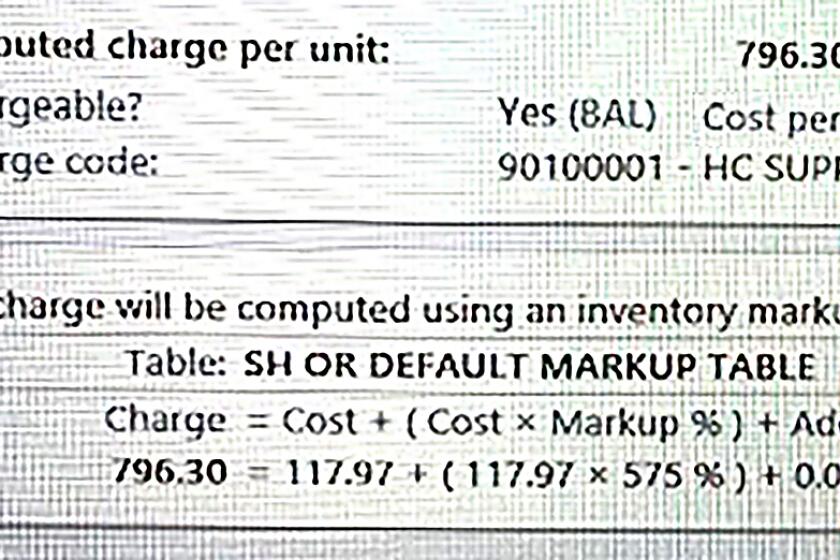How young people can build their credit

- Share via
Dear Liz: Our 23-year-old daughter has a low-limit credit card from her bank, primarily to build her credit history. For the same purpose, we also added her as an authorized user on one of our credit cards (yes, we can trust her). When she checked her credit reports recently at annualcreditreport.com, one of the agencies produced a report but another claimed they couldn’t find her. Is that normal for a relatively new credit user? Could it possibly be because she has a hyphenated middle name? Should we worry?
Answer: It can take 30 days or more for information to be updated at the credit bureaus, so she should try again and also check the third credit bureau. If two bureaus can’t find her after 30 days, then it’s possible that both credit cards report to only one bureau. In that case, she should consider getting a credit-builder loan from a credit union that reports to all three bureaus.
Otherwise, the problem is likely the credit bureau’s, and she should try ordering the missing credit report via the U.S. mail. The bureau that couldn’t find her will have instructions for requesting a report that way on its site.
In response to a column by David Lazarus, readers share horror stories of trying to get their deceased parents’ money, only to be stalled by BofA.
When pension trumps Social Security
Dear Liz: I am in my third marriage. My first two marriages each lasted 10 years. My spouses worked in jobs requiring them to pay into Social Security. I am currently retired (since 1999) and worked for a city government my entire career. I currently receive a pension from the city. Am I entitled to receive anything from Social Security for the time I was married to my previous spouses? It seems only fair since I had to pay each of them spousal support.
Answer: That’s a novel argument! Alas, the Social Security system doesn’t care about the details of your divorce decrees.
You can call Social Security and ask if you’re eligible for a benefit, but don’t get your hopes up if your pension comes from a job that didn’t pay into Social Security. A provision known as the government pension offset probably would wipe out any divorced spousal or divorced survivor benefit you might receive.
Screenshots of a system used by Scripps Memorial Hospital show markups of as much as 675% being imposed automatically during treatment.
Adding sister to a house deed
Dear Liz: A reader recently asked about giving a rental house to the sister that has been living in it for 10 years. You mentioned that the reader would have to file a gift tax return since there is a max of $15,000 for a gift exemption. Couldn’t the owner simply add the sister to the title so when they pass the sister becomes the sole owner of the house without having to deal with taxes, probate, etc? Similarly, if the sister dies first the current owner would retain ownership to give, sell, donate as they choose.
Answer: Adding the sister to the deed would be considered a gift, so the reader would still have to file a gift tax return.
Owning the home together would avoid probate and give the surviving sister a tax break, and that half of the house would get what’s known as a step-up in tax basis at the first sister’s death. Another option, if the reader wanted to retain ownership, would be a transfer-on-death deed, which is available in many states. The reader was clear that she wanted to give an outright gift, but she could consult a real estate or estate planning attorney about other options.
Rules enacted during the Trump administration have finally taken effect, giving debt collectors the ability to reach people via digital means.
Taxes on retirement account withdrawals
Dear Liz: I would love to give my grandchildren money, but I don’t want to pay the income tax on withdrawals from my IRA or 401(k). Will they get it tax free when I die?
Answer: Unfortunately, no.
Withdrawals from retirement accounts are generally taxable, whether the person making the withdrawals is the original contributor or an heir. Furthermore, non-spouse beneficiaries of retirement accounts generally must withdraw the money within 10 years.
Liz Weston, Certified Financial Planner, is a personal finance columnist for NerdWallet. Questions may be sent to her at 3940 Laurel Canyon, No. 238, Studio City, CA 91604, or by using the “Contact” form at asklizweston.com.
More to Read
Inside the business of entertainment
The Wide Shot brings you news, analysis and insights on everything from streaming wars to production — and what it all means for the future.
You may occasionally receive promotional content from the Los Angeles Times.













